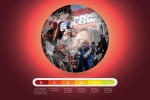By Own Correspondent
THE Zimbabwe Congress of Trade Unions (ZCTU) has criticised the powers to interfere with trade union administration given to the Labour Minister in the new Labour Act amendments.
Clause 20 of the new Act signed into law just before the elections now gives the right to any person directly involved in a trade union or employer’s organisation’s election to complain to the Minister about the conduct of the election on grounds of fraud, coercion or unfairness.
An analysis of the new law prepared by the ZCTU legal adviser, Fiona Magaya fears that if not properly executed, the Minister’s role risks leading to unnecessary interference on Right to Organise and Collective Bargaining of legitimate powerful trade unions.
“Subjecting trade union or employers’ organisations election disputes to the Minister and Registrar is a serious interference in the affairs of a trade union and a violation of article 3 of ILO’s Convention 87.
“After an election or congress any aggrieved trade union members already have recourse through the Courts but giving these powers to the Minister is a violation of Freedom of Association which provides that legislative provisions which regulate in detail the internal functioning of workers and employers organisations pose a serious risk of interference by the public authorities,” the labour analysis said.
The labour organ contends that labour best practices state that where such provisions are deemed necessary by the public authorities, they should simply establish an overall framework in which the greatest possible autonomy is left to the organisations in their functioning and administration.
“Furthermore, during tripartite negotiations, under principle No.8, it was agreed that s51 must be repealed. Our appeal is for the government to honour Zimbabwe’s International obligations and commitments,” added ZCTU.








Leave a comment